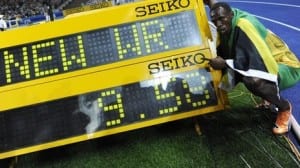On reflection of this weeks session I have learnt that time management is key when you are teaching circuit training. Estimating how long each station will take to complete can be difficult when you don’t know the group you are coaching very well. After the session, I recognized that if you don’t judge the sessions efficiently enough when you plan the work it can be easy for the lesson to finish with half an hour to spare. This situation forced me to reflect in action as I had to think of what could be done to fill the time. This scenario taught me that if there is any time left after the session you planned is over, it is effective to progress the lesson further and challenge the participants more. Additionally, it is valuable to have more time to recap the learning outcomes to evaluate what has been learnt and achieved so far. This is something I learnt in action to apply more to my lessons half way through instead of at the end. This gives more time to achieve the outcomes set. I also learnt what and how I can improve in future coaching sessions in relation to time keeping.
An example of how I would like to improve for future sessions would be to firstly, set out realistic times for each task in the lesson plan. Secondly, sticking to these time scales would prevent any reason for having time to spare at the end of running out of time. Overall, better time management would have avoided the situation in this weeks session which is what I will focus on during the following sessions.

